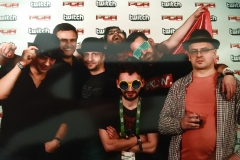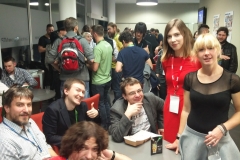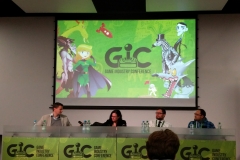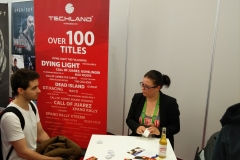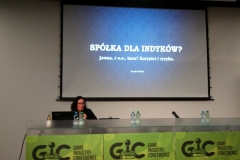Saturday, October 22nd – design, marketing and voxels
Continuing previous post, Saturday started with a closed presentation of a really great game, then continued with really great lectures and finished with awesome party. Let’s get started!
Closed presentation of Lost Ember
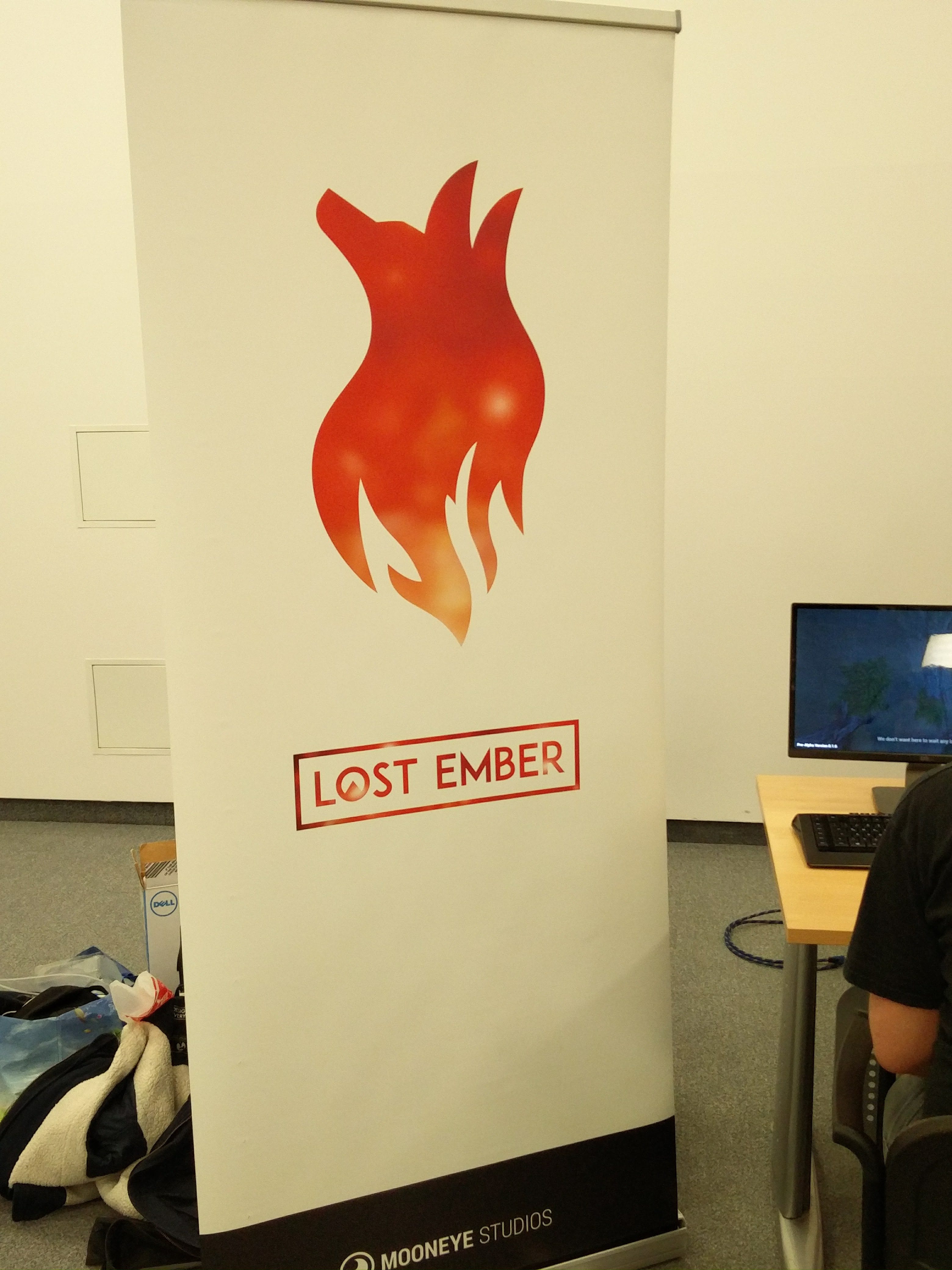 |
|---|
Game made by Moonshade Studio from Germany which has feeling of a mix of Okami and Journey. Even in pre-alpha state, the game looks really good, has a beautiful style and seems a bit enigmatic. From my point of view, it’s a game worth keeping eye on. You can support it on Kickstarter here.
Surviving Indieapocalypse with Michał Marcinkowski
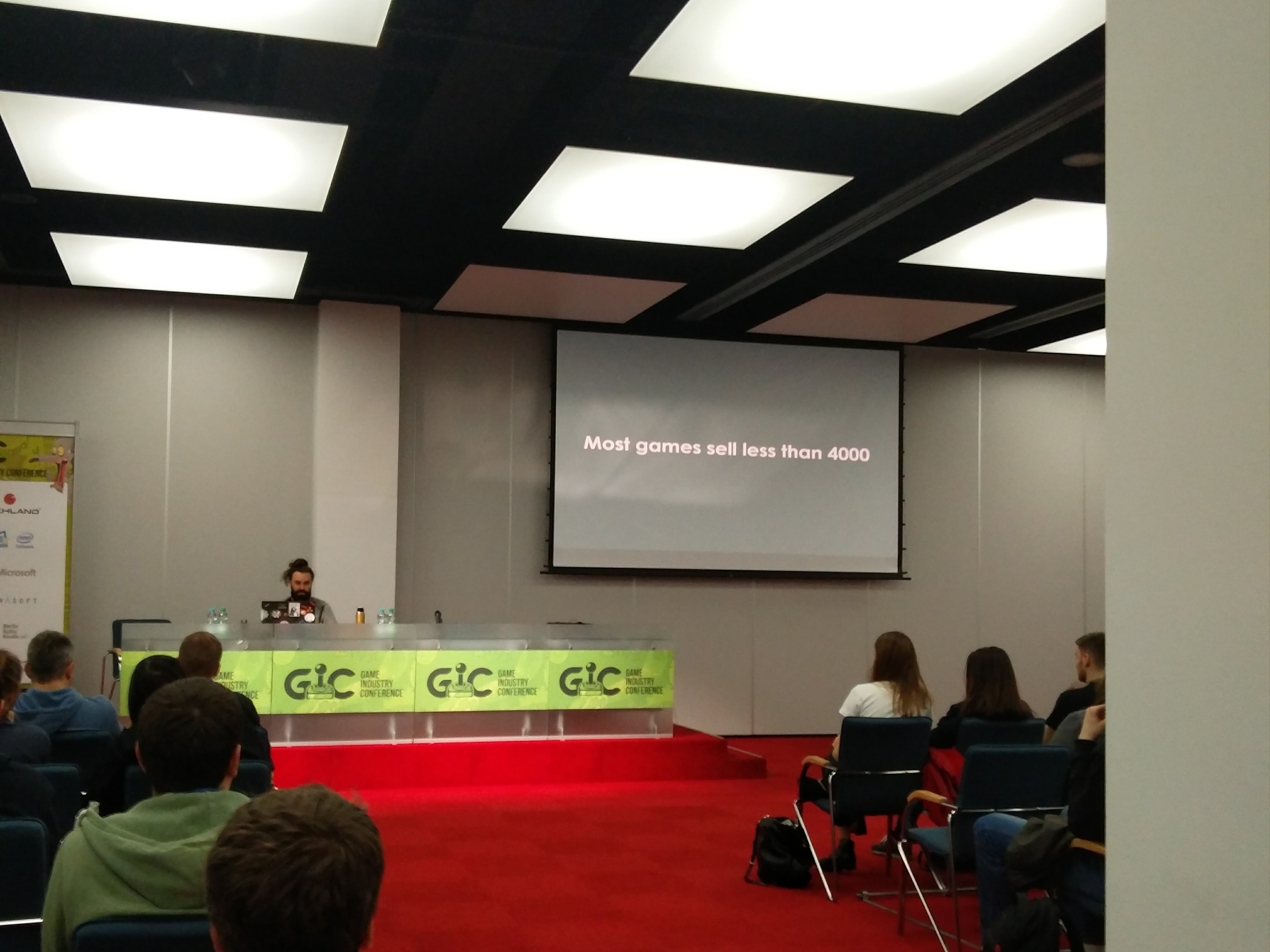 |
|---|
A magnificent presentation about current state of gaming market and how hard is to stand out from many other productions. Speaker laughed at theory of synergising between market, demand and quality, analyses of what gamers do want (or rather why we do not know what they want, actually). He presented in very funny and unsettling way how developing games currently looks like on examples. The main conclusion is that we do not have a golden rule for success – we can’t just predict what people might like when we will finish our product. And no fame, experience and marketing won’t guarantee a success. Even really good game with really great reviews can be a financial failure. “The only way to know if your game sells, is to sell it” – that was one of the golden rules. Usage of Early Access, Kickstarter, short / episodic release is strongly advised for indie developers to shorten development time and keep financial stability. Also that way we can determine early on whether the game will have a chance on the market.
Winning the unwinnable : How to promote and sell your game with Albert Pałka and Joanna Buganik-Pałka
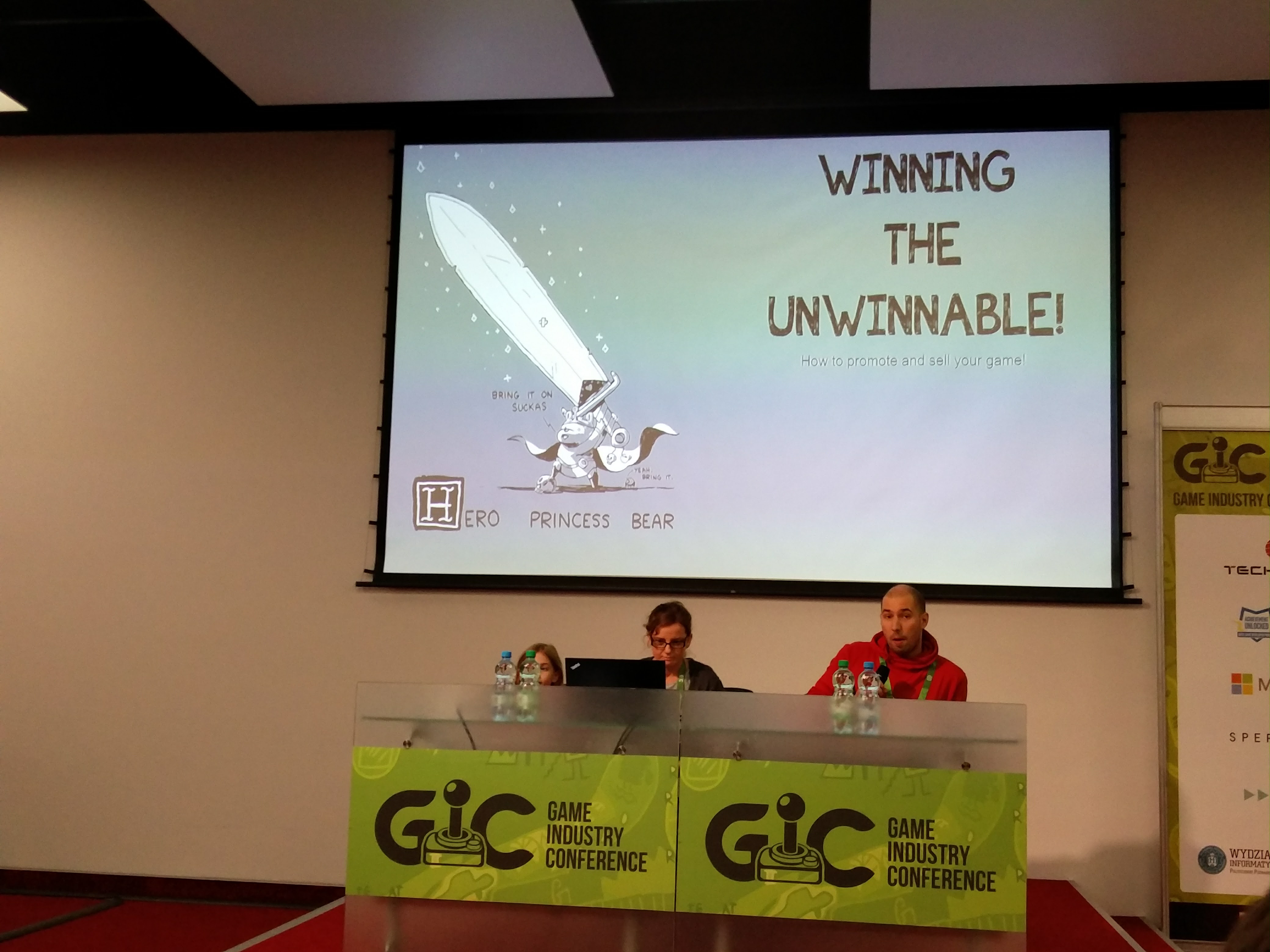 |
|---|
This adorable pair described a proper approach for indie developers to sell the product. They’ve explained that promotion is not marketing and how communication with people is essential for success. During the lecture, Albert and Joanna touched topics like: pitching, selling ideas and many other vital aspects of successful marketing. Aside from mentioned unique cases, the basis for the successful game launch is a plan that covers time way before the actual launch. I’ve learned a few great tips how to use social media in a proper way. To sum up – this lecture was a pure gold!
Sparse Voxel Octree usage in video game development with Szymon Jabłoński
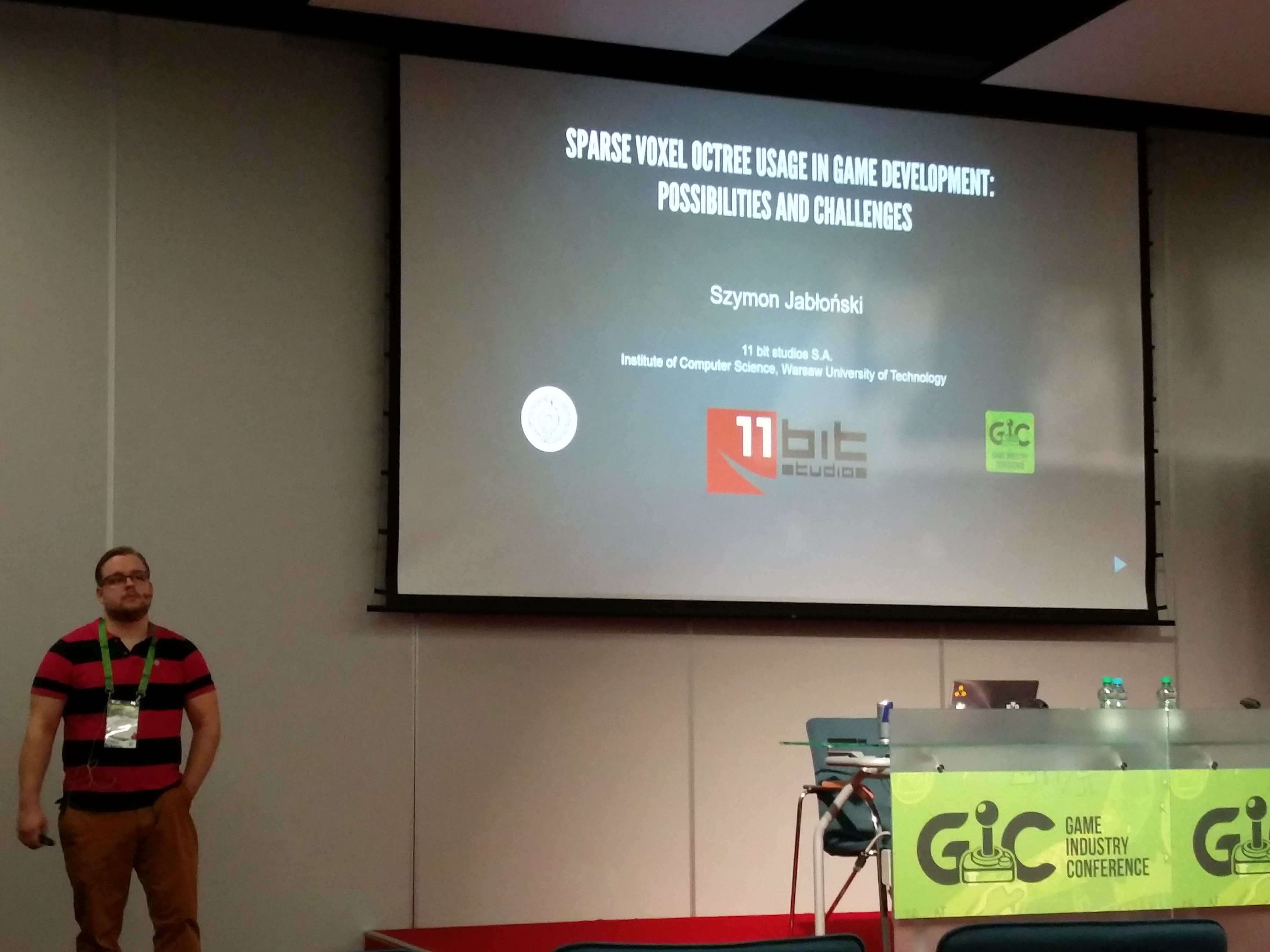 |
|---|
Engine programmer at 11 bit studios, creators of Anomaly series, This War of Mine and Frostpunk described the general ideas of SVO usage. Voxel is a known idea – a volumetric / 3d pixel, a part of the 3d space, which can be used as graphics issue solver. In early years, this technology couldn’t be used as real-time solution, but now we may use it’s advantages. These structures, however, are really memory demanding and still a bit complicated. Luckily there are methods to optimise them. SVO is a kind of compression method and hierarchically data storage which is really useful for Level Of Detail features (optimization for rendering of large areas that lowers quality of graphics in the distance to prevent from wasting resources on details we won’t see). The most interesting idea is the Unlimited Level Of Detail methodology that could handle unlimited number of objects without having problems to manage the level of detail of these objects and provide even the destructibility of them. This could be the future of efficient rendering but still it’s a work in progress as author described. I hope that Szymon will succeed! To conclude, SVO can be perfect for continuous LOD management, object fracturing, voxel objects rendering and many others. Presentation was a bit tricky to handle but very valuable and interesting. Here’s a link to his paper about it.
Don’t hate cheaters. Use them! with Robert Maroschik
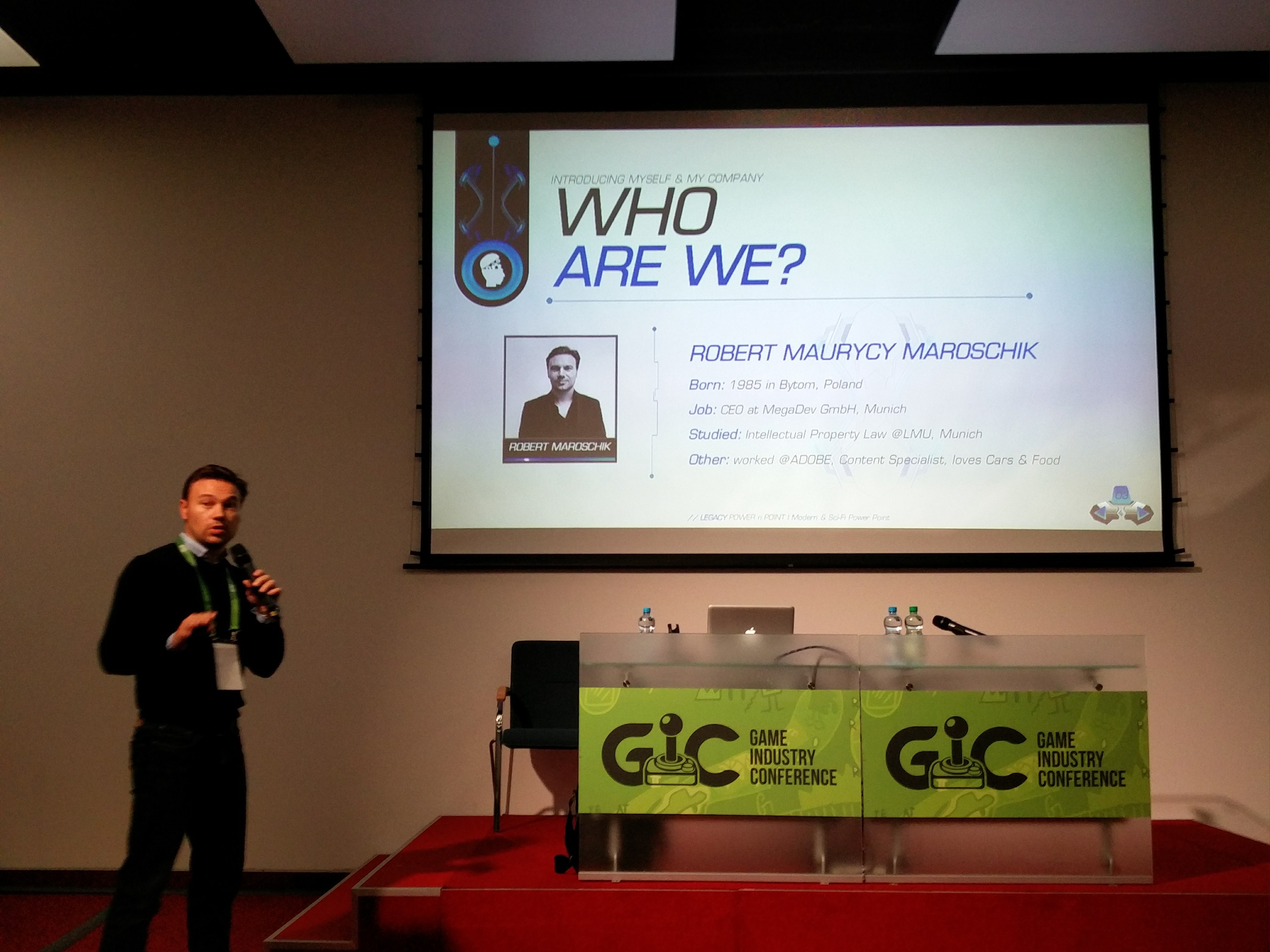 |
|---|
An unique approach for balancing game design – to use game trainers. Many people cheat during single player gameplay, often when they’re stuck in the game, or just don’t have the time to focus on the hard part. Because Megadev’s data gathering from their trainer software, developers can deduce what parts of the game design are poorly balanced or can be changed / improved. Robert provided great examples of problems that can be found by cheat usage and therefore fixed by developers. This brings back memories of early programming experiences and computer engineering learning. It was really great and informative presentation.
Procedural levels in Jupiter Hell with Kornel Kisielewicz
A great set of procedural concepts that are used in Jupiter Hell game that will be coming out soon. By using layouts and synergised algorithms developers can generate levels that will rarely repeat at all. The procedural generation doesn’t apply only to the layout of the level but also detail outlook and order. There were many interesting tips that I’ll definitely apply when I’m going to work on some project with procedural levels.
After very informative day, I ended up at Twitch party, which lasted till the early morning. I’ve met many wonderful people there, shared thoughts and drinks – it was really great!
Sunday, October 23rd – law and stupidity
After quick reboot, the last day of conference started. Thanks to Techland’s coffee stand, people were able to live through the day :D.
Lectures about legal issues in game development with Kamila Dulska, Michał Pękała and Rafał Malujda
Most developers are very passionate people, rarely thinking about legal layer of gamedev business. Kamila Dulska talked about forms of businesses that developers might establish to work on their games without any legal problems. This was a fountain of priceless knowledge that every developer might benefit from. After presentation, I went to discussion panel, where I heard many interesting legal cases and exceptions that were presented by listeners which were worth remembering. Speakers pointed out that the best way to dodge basic problems with copyright law
is to formalize at least in a basic way terms of cooperation within team.
Artificial Stupidity with Aleksander Kauch
A great set of most popular algorithms used in game development, A*, Dijkstra, MinMax etc. Also it was pointed out that sometimes it’s not the matter of AI being perfect but rather to make mistakes in a way that feels human. Nothing new here, but still great reminder of programming knowledge.
Making use of genetic algorithms in game development with Mateusz Pilski
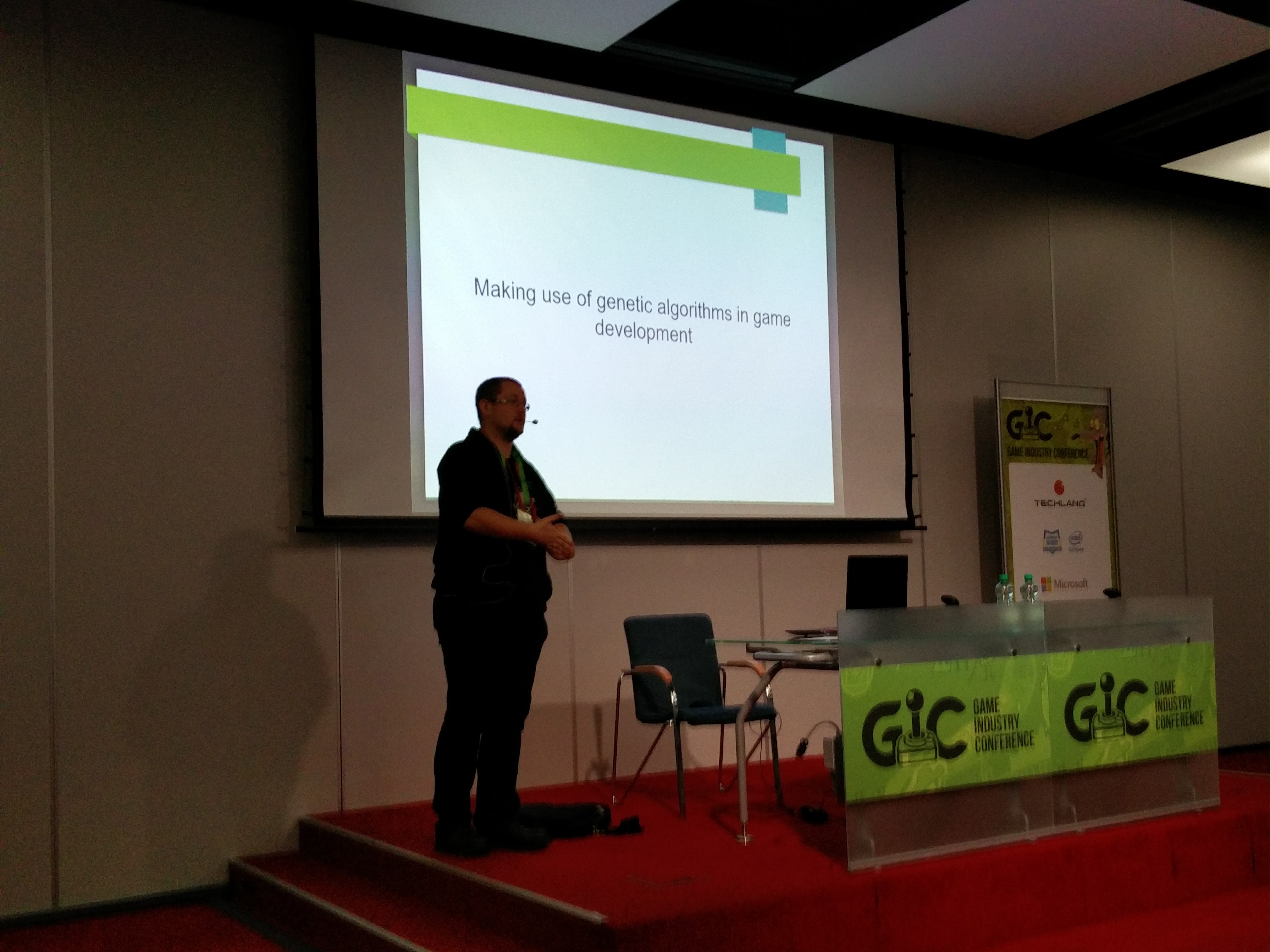 |
|---|
Speaker explained basics of genetic algorithms (PID, fitness functions), definitions and how they work. Presented how they can be applied in game development: AI adjustment, balancing game design and strategies, simulate ability in RPG games, various visual effects and automated A/B testing. List goes on and on! Really interesting approach that’s definitely worth testing and applying in productions.
Conclusion
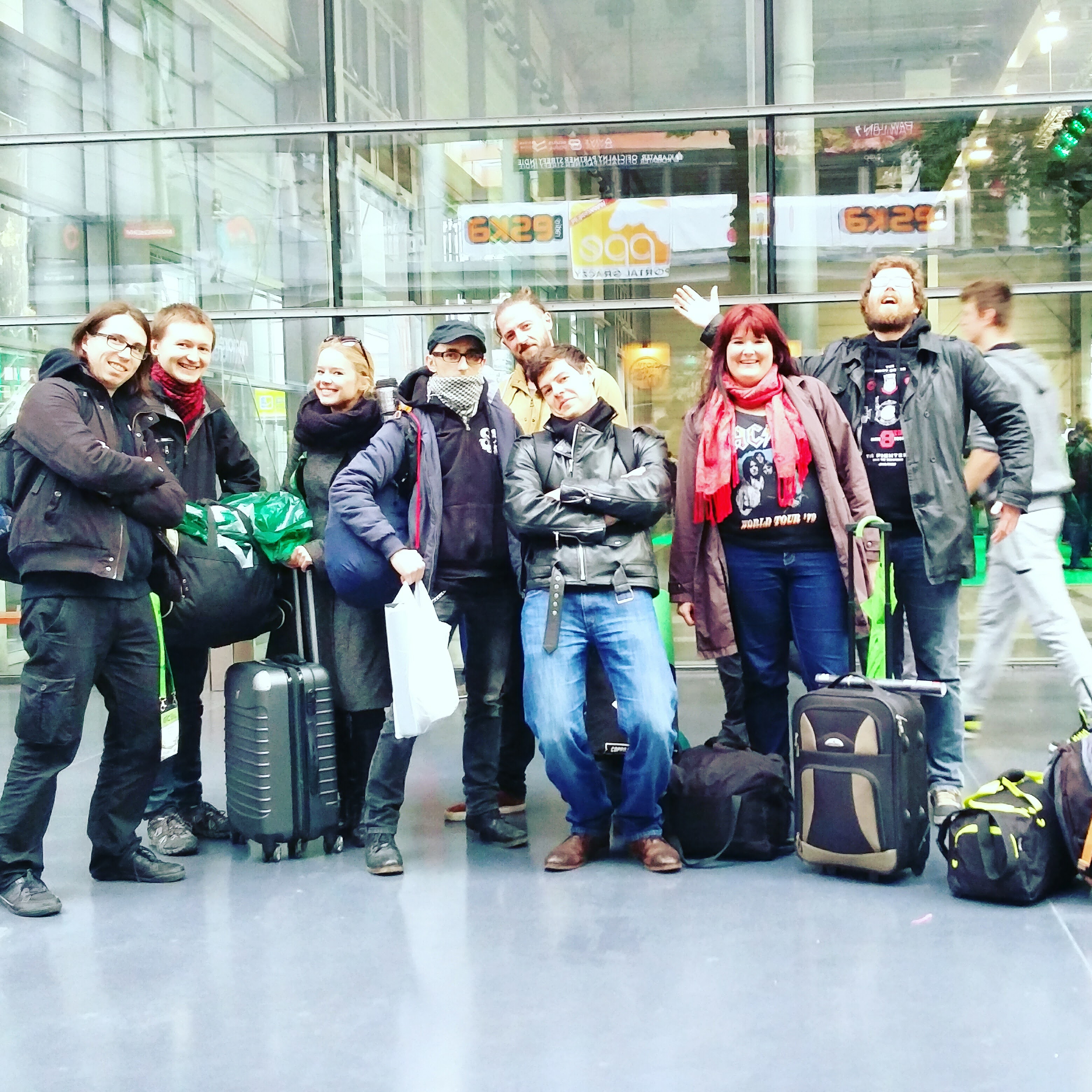 |
|---|
These were 3 truly magical days filled with really informative lectures, meeting amazing people and great parties in-between. If somebody I met there reads this – thank you from the bottom of my heart for sharing time, thoughts, laughs and wisdom. Events like this are really inspiring and shows that gaming industry is a business for really passionate people that motivates to be a part of it in any way possible. Thank you all!


